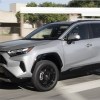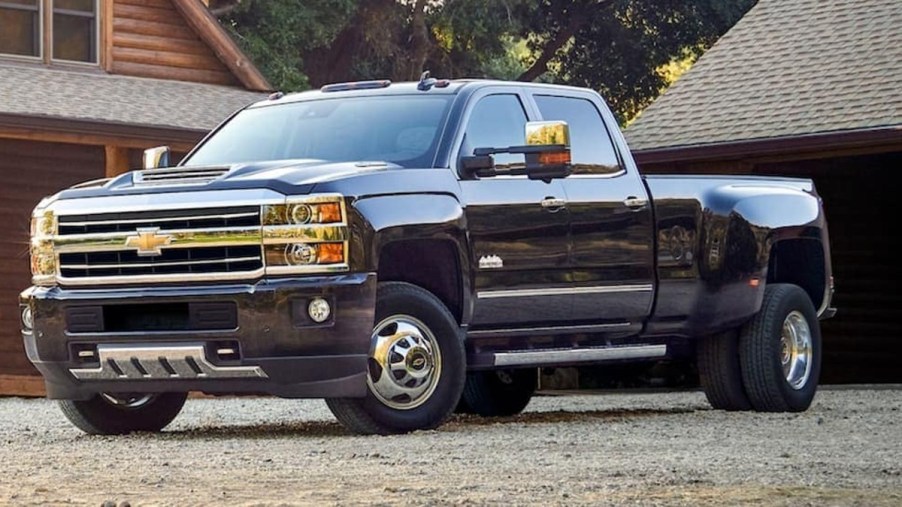
Do You Actually Want a Diesel Engine in Your Truck? Pros and Cons of Using Diesel Power
In a world moving toward electric vehicles, choosing a diesel-powered truck seems like a step in the opposite direction. Large semis have used diesel engines for a long time to enjoy the greatest power for pulling a heavy load. Is this the type of engine you want or need in your truck? Let’s consider some pros and cons of driving a truck powered by diesel fuel.
Pro: A diesel engine offers greater fuel economy
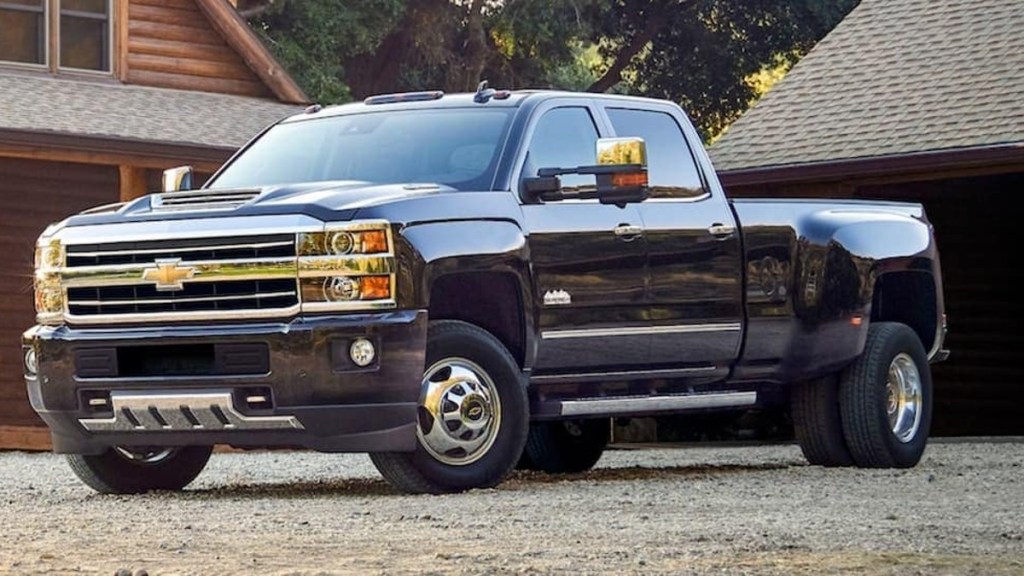
Across the board, diesel trucks are more efficient than those that use gasoline. MotorTrend highlights this fact by telling us about the greater energy density of diesel fuel. This density allows a diesel truck to use direct injection to burn less fuel than the gasoline models’ port-injected setup. As a direct comparison, the 2022 Chevrolet Silverado 1500 offers a good example.
The Silverado’s 3.0-liter turbocharged Duramax diesel six-cylinder engine plus 10-speed automatic transmission returns 23 city/31 hwy mpg in RWD models and 22 city/26 hwy mpg in 4WD versions. This engine also has 277 horsepower and 460 lb-ft of torque.
The base engine is the closest any of the gasoline engines comes to the fuel economy of the Duramax engine. This model is a 2.7-liter turbocharged four-cylinder engine plus an eight-speed automatic transmission. This powertrain delivers 310 horsepower, 420 lb-ft of torque, and 19 city/22 hwy mpg in RWD models, while 4WD versions offer 17 city/20 hwy mpg.
Con: The initial cost is much more than gasoline trucks
In America, we see diesel engines mostly only in the full-size trucks and large SUVs in the market. Most models that use this fuel are at least $10,000 more expensive than their gasoline counterparts. This initial cost does turn some customers away from the diesel powertrain, opting instead for a more affordable gasoline model.
Pro: Greater towing capacity with diesel engines
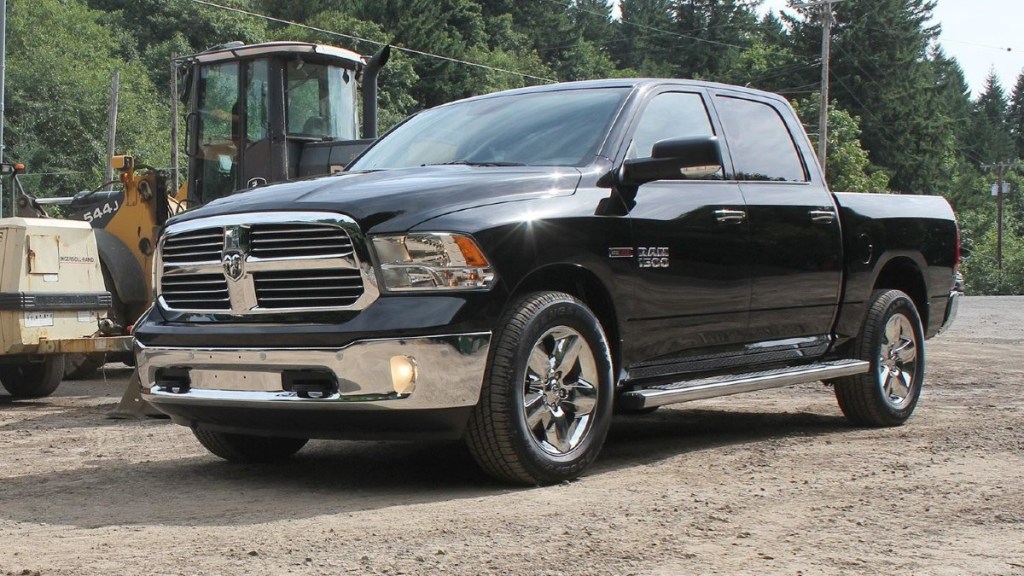
The higher torque numbers of a diesel truck allow owners to pull a much heavier load than if they selected a gasoline model. The three big names for diesel models in the market include Cummins, Duramax, and Power Stroke. These engines in the heavy-duty truck models deliver 910, 1,000, and 1,050 lb-ft of torque to allow towing of 35,000 pounds or more.
Con: Diesel fuel is more expensive than gasoline
Every time you pass a gas station, you can see proof of this. Diesel fuel is typically at least $0.50 more than gasoline per gallon. The National Motorists Association Blog highlights that a change to “Ultra Low Sulfur” fuel caused the price increase of diesel. There was a time when diesel fuel was more affordable than gasoline, but that’s no longer the case.
Pro: Longevity of diesel engines
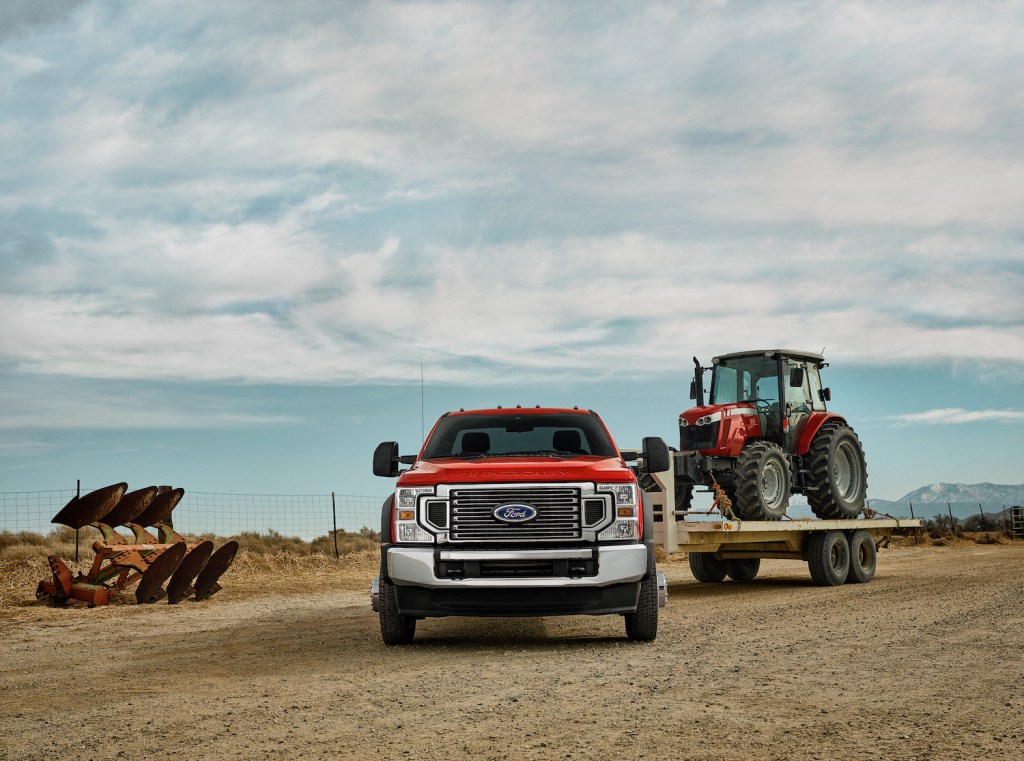
Most gasoline engines cannot last nearly as long as a diesel model. Different experts offer various mileage marks, but all agree that gasoline trucks wear down faster and require more costly repairs much sooner. Typically, a diesel engine can last more than 350,000 miles before any costly repairs are required.
Con: Maintenance costs
The typical maintenance visit for a diesel truck is much more than that of a gasoline-powered machine. Hot Cars tells us diesel engines need more frequent oil changes, filter changes, and water separator cleaning. Oil changes usually range from $60 to $80 for a diesel truck compared to $20 to $40 for a gasoline pickup.
Pro: Fuel flexibility in diesel engines
Gasoline vehicles can only burn gas, but a diesel pickup can also burn biodiesel or other fuels that help reuse items from restaurants. In fact, these engines can burn Waste Vegetable Oil, which is something you could pick up at your local restaurant. Of course, you must modify your engine, but you can use this waste in your vehicle, and many eateries will give it to you for free.
Con: Vehicle availability
Gasoline vehicles are much more common than those with a diesel engine under the hood. In the United States, most vehicles with a diesel power plant are trucks and large SUVs. Even these vehicles are limited. For example, the Chevrolet Colorado, GMC Canyon, and Jeep Gladiator are the only midsize trucks offered with a diesel engine. Ford doesn’t even offer a Power Stroke engine in the F-150, limiting the vehicles you can buy if you want to use diesel in your truck or SUV.
Should you buy a vehicle with a diesel engine?
If you need more towing capacity than a gasoline engine and want a vehicle that lasts a long time, diesel power makes sense. On the other hand, if you’re not going to keep your vehicle for more than a few years and don’t tow heavy loads, you’re probably better off driving a gasoline-powered truck or SUV.
Next, find out why you’ll pay more for one of the worst midsize trucks, or watch the video offering more pros and cons of owning a diesel vehicle, below:
This article was updated on 7/21/2022.

